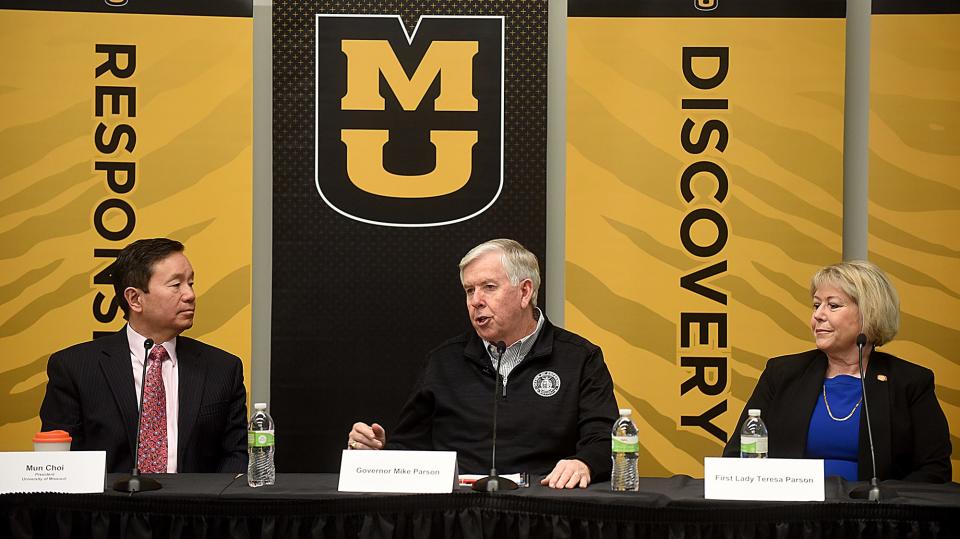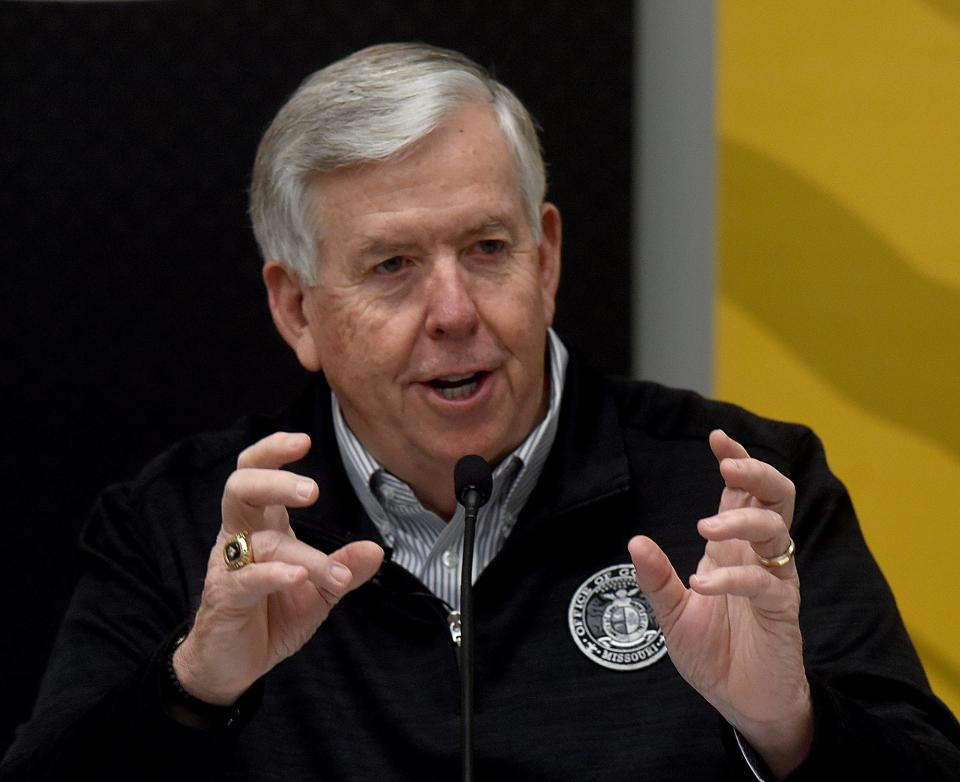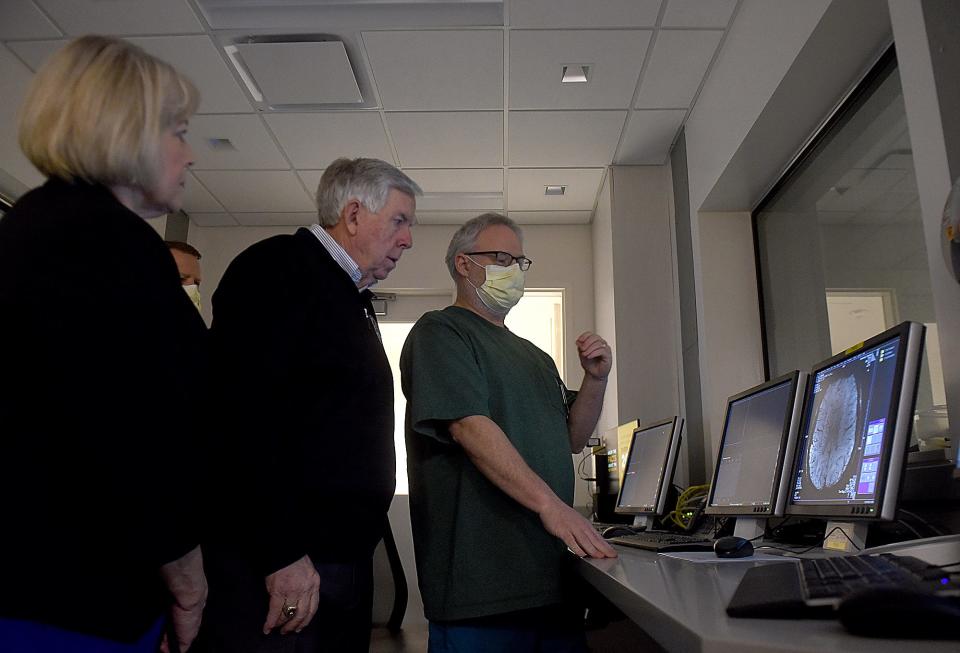Gov. Mike Parson talks workforce development at Mizzou's NextGen with mid-Missouri leaders
- Oops!Something went wrong.Please try again later.
With state finances in good shape, funding for areas that will advance workforce development will be forthcoming, Gov. Mike Parson on Friday told a group of area leaders gathered at the Roy Blunt NextGen Precision Health Building.
"We have an opportunity of a lifetime to get it right for the next generation and generations after that," Parson said.
The state's core funding for the University of Missouri will give the state opportunities it has never had before, he said.
"We're building a foundation this year," Parson said. "We will build on it next year and the year after that."

The funding won't be a "one-and-done" situation, he said.
"The education environment piece of workforce development is critical," Parson said.
Broadband improvement is another area he emphasized.
"We're going to make the largest investment in the state's history in broadband," Parson said.

Marshall Stewart, MU vice chancellor for extension and engagement, said the need for high-speed internet became real to people during the COVID-19 pandemic.
"This is no longer an optional thing," Stewart said. "This is a must."
The university's research reactor has become a major source of radioisotopes used in cancer treatments, said David Robertson, research reactor director.
The radioisotopes produced at MU are used to treat more than a half-million patients a year, Robertson said.
Over 90% of patients treated for thyroid cancer with the radioisotopes are cured, he said.
With the shutdown of a research reactor in Europe, the MU reactor has ramped up production to meet worldwide demand, he said.
Planning has started for a new reactor, though the current one remains safe, Robertson said.
"Ours is 55 years old," Robertson said. "We need to build a next-generation reactor."
Federal funding of $115 million for research through the state includes money for a design feasibility study for a new research reactor, MU chancellor and UM System President Mun Choi told reporters after the event.
Choi promoted the recent economic impact study showing MU's $5 billion annual impact on the state and the UM System's $6.5 billion economic impact.
"That's a 25-to-1 return on investment" Choi said, referring to state funding to MU.

Moberly Area Community College partners with MU and Columbia Public Schools to prepare students for careers, said Todd Martin, MACC vice president for instruction.
MACC programs are at Columbia Area Career Center, and high school students in Columbia are enrolled in the early college program, with 40 students preparing to graduate from high school with their associate degree from MACC at no cost to the students, he said.
"I can't imagine a better climate for higher education" than exists now, Martin said.
Parson also discussed the need to improve pay for K-12 teachers and for child care workers.
Mental health was another topic.
"We've got to do a better job in this state in taking care of people with mental health issues," Parson said.
rmckinney@columbiatribune.com
573-815-1719
This article originally appeared on Columbia Daily Tribune: Gov. Mike Parson focuses on workforce development at NextGen stop

